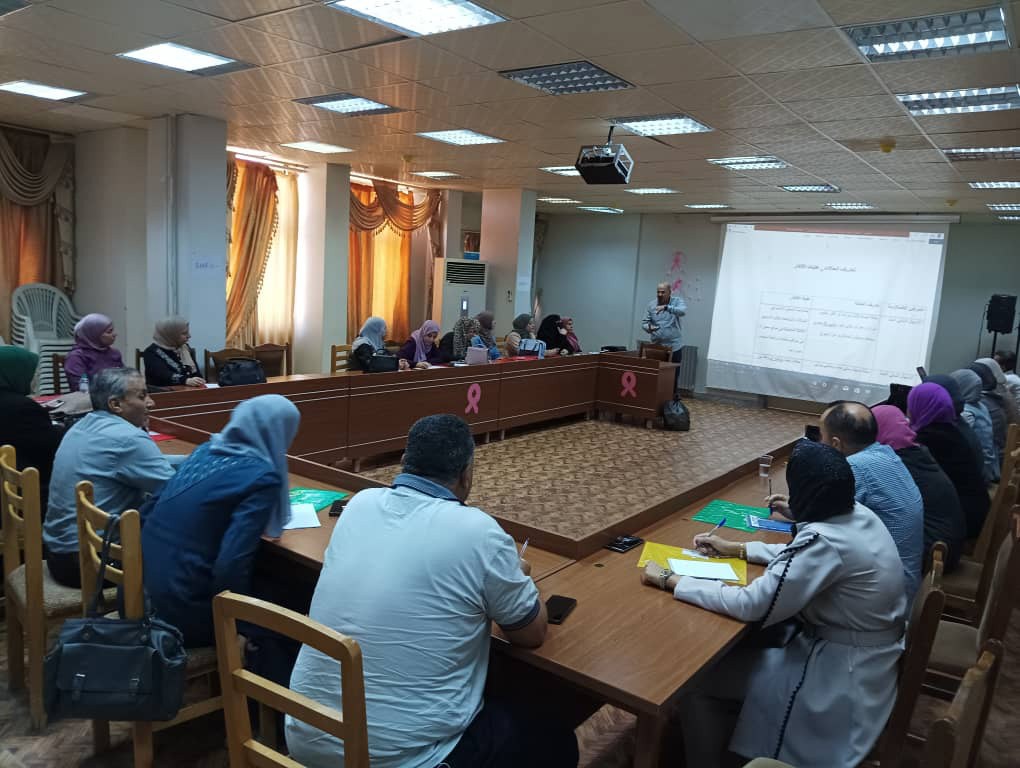 Participants attending the cholera Rapid Diagnostic Tests (RDTs) training in Daraa Governorate. Photo credit: WHO 27 November 2025, Damascus, Syrian Arab Republic – In Syria’s towns and villages, a quick and coordinated response can mean the difference between a contained outbreak and hundreds falling ill. When a child arrives at a clinic with symptoms of acute watery diarrhoea, trained health workers now know what to look for, how to test safely, and how to act fast to protect others.
Participants attending the cholera Rapid Diagnostic Tests (RDTs) training in Daraa Governorate. Photo credit: WHO 27 November 2025, Damascus, Syrian Arab Republic – In Syria’s towns and villages, a quick and coordinated response can mean the difference between a contained outbreak and hundreds falling ill. When a child arrives at a clinic with symptoms of acute watery diarrhoea, trained health workers now know what to look for, how to test safely, and how to act fast to protect others.
To strengthen this readiness across the country, the World Health Organization (WHO) and the Ministry of Health (MoH) have completed a series of nationwide workshops to improve early detection and rapid response to acute watery diarrhoea and other waterborne diseases.
With generous support from the Syria Humanitarian Fund (SHF) — a rapid and flexible pooled funding mechanism managed by the United Nations Office for the Coordination of Humanitarian Affairs (OCHA) to address the most critical humanitarian needs — these joint efforts are helping strengthen Syria’s public health preparedness as communities adapt to challenges such as climate change, population movements, and water scarcity.
“Health workers are the backbone of any health system. By improving their ability to detect and respond quickly to disease outbreaks and keeping them informed with the latest research and tools, we are protecting families and strengthening Syria’s resilience against future health threats,” says Dr Rasmieh Al-Lahham, Technical Officer at WHO Syria.
Across all governorates, 11 three-day workshops brought together health officers responsible for tracking and responding to diseases. Participants learned how to identify suspected cholera cases, investigate outbreaks, report accurately, and coordinate response efforts. More than 300 health workers were trained in updated reporting methods, safe collection and transport of laboratory samples, and essential infection prevention and control practices. The sessions also focused on water, sanitation and hygiene measures and on working closely with rapid response teams to stop outbreaks faster.
In parallel, 11 additional workshops were organized for laboratory technicians working in health centres. These sessions strengthened their skills in using and interpreting rapid diagnostic tests for cholera and reinforced reporting systems that help confirm cases and trigger timely action.
“Every minute counts in outbreak detection and response,” adds Dr Rasmieh Al-Lahham. “With support from the Syria Humanitarian Fund, we were able to cover the operational costs for Ministry of Health rapid response teams to verify suspected cases, follow up in the field, improve data accuracy, and ensure health facilities are ready to respond. We also helped strengthen communication skills so health workers can raise awareness in their communities on how to prevent illness and protect their families.”
From the first signs of illness in a local clinic to the coordinated action of trained health workers, these efforts now mean faster detection, quicker confirmation, and stronger protection for families across Syria – helping keep communities safe and healthy.








